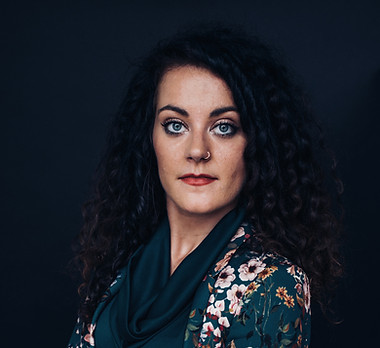Seán Binder

Seán Binder is an human rights defender who spent over 100 days in pre-trial prison in Greece and still faces 20 years imprisonment for what Human Rights Watch has said is the "criminalisation of saving lives". Since his arrest while coordinating bona fide search and rescue on the island of Lesvos, Seán has researched, and advocated against, the shrinking of civic space across the EU.
Yumna Kamel

Yumna Kamel is the Co-founder and Executive Director of Earth Refuge, a legal think tank dedicated to climate migrants. The organisation works to fill the gap in protections for communities displaced by climate, whilst providing context about this underreported issue for a wider audience. Yumna is also the Legal Education Officer at the London-based NGO 'Right to Remain'.
Mina Fazel

Mina Fazel is a Professor of Adolescent Psychiatry at the University of Oxford and a consultant in Children’s Psychological Medicine at the Oxford Children’s Hospital. She has been working for almost two decades on mental health issues concerning refugee populations, with two focuses to her work- firstly how best to provide mental health services for populations who are hard to reach which has led to an interest in school-based mental health services. Her second interest is in improving access to evidence-based trauma therapies, especially for young people suffering from PTSD and the use of Narrative Exposure Therapy. She has an interest in and concern about the use of immigration detention for all refugees, especially children.
@minafazeloxford
Daniel Trilling

Daniel Trilling is a journalist based in London who writes for the Guardian, London Review of Books and other publications. He is the author of "Lights in the Distance: Exile and Refuge at the Borders of Europe" (Picador, 2018), based on several years of reporting on refugees in Europe, and "Bloody Nasty People: the Rise of Britain's Far Right" (Verso, 2012).
Maha Sardar

Maha has worked in the field of immigration, asylum and human rights for the last 15 years. She is currently practising as a barrister at Garden Court chambers, where she has a predominantly legal aid practice and represents some of the most vulnerable members of society: victims of trafficking, torture and persecution.
She is currently working on a personal non-profit project (“Belong”) – an app to facilitate the integration of refugees in the UK. It hopes to provide the tools and information, contacts and connections that will enable refugees to become fully functioning members of society and provide a sense of belong in their new home.
Sangeetha Iengar

Sangeetha is an award-winning human rights barrister, international development consultant, TEDx speaker and advocate dedicated to improving access to rights for the most vulnerable members of our global community.
Sangeetha specialises in asylum, immigration and international human rights law. In her domestic practice she has particular experience of working with vulnerable clients – from representing unaccompanied children to victims of torture and trafficking and those suffering from complex mental health problems. Sangeetha also has an extensive international practice providing legal advice to the Global Survivors Fund and international associates of Al Jazeera, the British Red Cross, Marie Colvin Journalists’ Network and The Circle NGO.
Sangeetha spent several years ‘on the frontline’ advising governments of fragile states and parties transitioning from conflict. This has involved advising on access to justice mechanisms for vulnerable communities, proposing structural improvements to formal criminal justice systems, working on capital punishment cases, and implementing community-based justice solutions.
Sally Hayden

Sally Hayden is a journalist focused on migration issues and the author of 'My Fourth Time, We Drowned', a book based on years of communication with refugees locked up in Libyan detention centres as a direct result of European policy. She has reported across Europe and the Middle East, and is currently the Africa correspondent for the Irish Times newspaper.
Robert Lewis-Lettington

Robert Lewis-Lettington is Chief of the Land, Housing and Shelter Section at UN-Habitat. He is also Secretary to the drafting committees of UN-Habitat’s governing bodies and UN-Habitat representative to the Human Rights Council and human rights treaty bodies. Robert is a lawyer by training and has worked in both public and private international law for more than twenty years. Robert’s principal areas of expertise are international institutions and processes, human rights and humanitarian law, environmental law, science and technology law and urban development. Robert is also an experienced programme and project manager having worked in most geographic regions and a number of countries. Robert also plays the bagpipes badly.
Petra Molnar

Petra Molnar is a lawyer and anthropologist focusing on the impacts of technologies at the border. She co-runs the Refugee Law Lab at York University and is writing a book called Artificial Borders: AI, Surveillance, and Border Tech Experiments.
N'Deane Helajzen

N’Deane Helajzen is a Serbian Australian anthropologist with expertise in human rights, gender equality, conflict related sexual and gender-based violence, international humanitarian law, refugee and IDP’s, inter-ethnic relations, ethnic conflict and nationalism. Over the past 22 years she has worked with refugees, IDP’s and other minority populations in 26 countries, mostly post-conflict, across the Asia Pacific region, Sub-Saharan Africa and Eastern Europe. The daughter of a political refugee from the former Yugoslavia she currently lives in Belgrade but works throughout the region. She has provided expert advice on refugees, minorities and minority rights to governments, multilateral agencies and international organisations. She has been working in the European refugee crisis along the Western Balkans route since May 2015 founding local not-for-profit organisation, Ethnovision to elevate the voices of marginalized and vulnerable refugees and migrants using the narrative power of storytelling and photojournalism to advocate for social change by public awareness raising in global spaces.
Bilal Sarwary

Bilal Sarwary is an Afghan journalist who has worked extensively with western media including being a BBC reporter covering Afghanistan since 2001, since US led invasion that toppled the Taliban. Independent Scholar majoring in the central linkages between warfare, drugs and terrorism, specialising in 'The FARC-ification of Taliban. AFGHAN' .




)%20(1).png)


